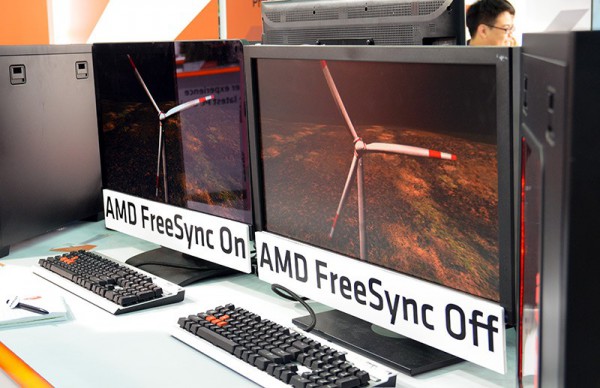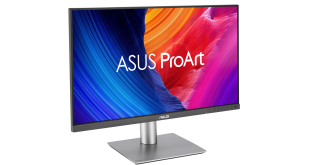The first AMD FreeSync compatible monitors are expected to launch this year and five display manufacturers have already committed to supporting the variable refresh rate technology. LG, BenQ, ViewSonic, Samsung and Nixeus all have FreeSync displays in the works.
Confirmed models range in size from a standard 24 Inch size all of the way up to 34 Inches for ultra-wide 21:9 panels. LG has confirmed that it will launch a 2560×1080 FreeSync monitor in the future. Asus, AOC and Acer are still working with Nvidia on G-Sync displays and have not yet announced support for AMD's non-proprietary technology.
BenQ is said to be working on a 1440p 144Hz monitor, which will compete with the Asus ROG Swift, which garnered up critical praise across the board. ViewSonic will be sticking to 1080p with a 144Hz refresh rate.
FreeSync technology is expected to add an extra $100 to a monitor's standard price. The technology allows certain AMD graphics cards to control the refresh rate of the display, eliminating screen tearing and stutter.
G-sync works in a similar way but requires manufacturers to fit monitors with a new image scaler.
Discuss on our Facebook page, HERE.
KitGuru Says: AMD's FreeSync currently has fairly limited compatibility, so it may take a bit longer for adoption of the technology to take off. That said, we are expecting new AMD GPUs this year, which will likely all have FreeSync compatibility.
 KitGuru KitGuru.net – Tech News | Hardware News | Hardware Reviews | IOS | Mobile | Gaming | Graphics Cards
KitGuru KitGuru.net – Tech News | Hardware News | Hardware Reviews | IOS | Mobile | Gaming | Graphics Cards




They should not bother with the sign telling them which is on and off…. People should be able to tell just by looking… All the signs will do is have a placibo effect.
swag
What are you mumbling about KitGuru? It was mentioned by AMD numerous times that the monitor price will not be affected much since FreeSync is essentially baked in DP 1.2a. That’s the equivalent rip-off price that Nvidia users are gladly paying for G-Sync that has actual Hardware embeded to the monitor.
For a better experience you pay more. I’ve seen G sync in action and from what I read on AMD Freesync it is not as good as G sync as, will try to link the article but the main issues were frame delivery. Which I guess is why AMD Have puts signs up telling people which has freesync and which has not… The placibo effect, Nvidia didn’t bother doing this as you could easily tell when compared side by side. Not taking sides here, but your rip-off comment made me have to comment. It really is not a ripoff, I will be jumping on G sync when I come back from Japan in 2017 without a doubht.
I really would not care if FreeSync comes out to be slightly inferior to G-Sync. That may (or not) be improved later with better drivers and hardware. It will still be a milestone for many AMD users if offered for free or at a minimal cost. It’s value/money that drives people to buy AMD, myself included since I live in SouthEastern Europe and hardware prices are always high.
Paying the same price Nvidia charges for G-Sync for a VESA standard that costs very little to the monitor manufacturer will definitely put off and disappoint many people.
It’s not slightly worse it is a lot worse (Which is why they labelled which one has it on and off), and the issues with it were the core of freesync. I also go for value and I am driven away from AMD constantly as while they are cheaper there is always a negative. For example one person went AMD on the CPU front to save £100 but because the AMD CPU uses so much more energy in comparison to intel they now need to buy a bigger PSU to power their new GPU. Which costs more than £100. Freesync can not be fixed with drivers and the 3 people I know who swapped to amd from nvidia/intel all say they made a big mistake and are desperately saving up to go back.
I used to be full AMD however I left them because the value was not worth the negatives especially in the CPU department. I will never go back at this point.